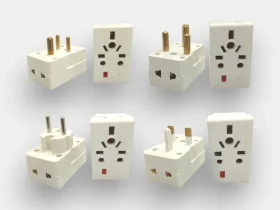You wouldn’t choose a business partner without asking tough questions, and a CRM vendor is no different. It’s more than getting a shiny system; it’s about finding someone who understands your business, tailors solutions, and sticks around when things get messy.
Whether you’re an Australian Project Manager leading change in a retail environment or a service-focused team, here’s how to pick wisely, and avoid those unexpected pitfalls.
1. Start with Real Needs, Not Glossy Pitch Decks
Your first job? Write down what your team really needs from a CRM, an upgrade, better reporting, smoother handoffs.
Outline:
- Must-haves: features essential to run your operations.
- Nice-to-haves: cool extras, but not essential.
Pro tip: Ask vendors to map your must-haves to their features, right from the first demo. No assumptions, no painful surprises.
2. Look for Practical Experience Over Buzzwords
So they’re “experts”? Great. But can they show it?
- Request success stories from Aussie retail clients.
- Ask how they handled unexpected tech hiccups mid-project.
- Check for certifications, but don’t stop there.
For example, teams often look for hubspot implementation partners, or agencies that really know how to roll out CRM smoothly across marketing, sales, and support.
3. Evaluate Integration Skills, It’s More Than Plugging In
Your CRM must be the glue of your technology stack, email tools, accounting systems, inventory apps, automation platforms.
Say you connect your books and sales data, for clarity and smooth operations, you might need something like quickbooks and hubspot integration.
Ask this early: “How does your CRM fit in my ecosystem?”
4. Ask About Ongoing Support, Not Just Implementation
A vendor who disappears after the launch is a red flag.
- What’s their support like after go-live?
- Do they offer training sessions and update roadmaps?
- Will they help tune workflows once team needs shift?
You want a partner who provides post-launch backup, not just hand-off.
5. Test Their Consulting Ethos
A good CRM vendor isn’t just a software dealer. They bring insight.
Ask about access to experts, perhaps through consulting services hubspot or equivalent. The deeper their advisory role, the stronger the outcome.
6. Realistic Pricing, Transparent and Flexible
Watch out for quotes packed with hidden extras. Instead, aim for:
- Tiered pricing: start simple, expand later.
- Support + upgrade plans clearly spelled out.
- Clarity on installation cost vs future custom work.
Steer clear of hourly rates that spiral, choose value over variable.
7. Culture & Communication Fit
You’ll be working closely, so:
- Do they speak your language, no jargon overload?
- Are they responsive and respectful of Aussie work style?
- Will they adjust time zones and touch base regularly?
A vendor who meshes with your vibe will perform better.
8. Trial a Mini Project First
Not ready to jump? Start small:
- Choose a pilot project.
- Agree on scope, timeline, outcomes.
- Assess how they handle feedback and change.
A short pilot can save major headaches down the line.
9. Ask the Tough Questions
- “What’s your average implementation time for mid-tier retail?”
- “What if custom changes exceed initial scope?”
- “How do you handle data security and compliance?”
Don’t be shy, detailed answers here mean fewer surprises later.
FAQ: Common Vendor Concerns
Q: What if I already have a CRM expert on staff?
They’re gold. But a vendor with deep integration and strategy experience is still worth involving,for structure, strategy, and support.
Q: Should I worry about custom vs admin-heavy systems?
Stick with off-the-shelf where possible. Customisations are great—but they need proper testing, documentation, and maintenance.
Q: Are published reviews trustworthy?
Use them as a starting point. But always ask for local references (even from non-competing retailers) to verify their value proposition.
Conclusion: Choose Confidence, Not Convenience
Selecting the right CRM vendor isn’t a sprintit’s a well-planned journey. Define what success looks like, dig into real capabilities, and test your fit, before committing.
Your next step:
- Pick your top 3 vendors based on solid evidence (not just sales talk).
- Run a short, real-world pilot for one key process.
- Ask for local referrals and test run the communication once they pass the trial.
Done right, your CRM vendor becomes a cornerstone of your tech stack, not a liability.






Leave a Reply